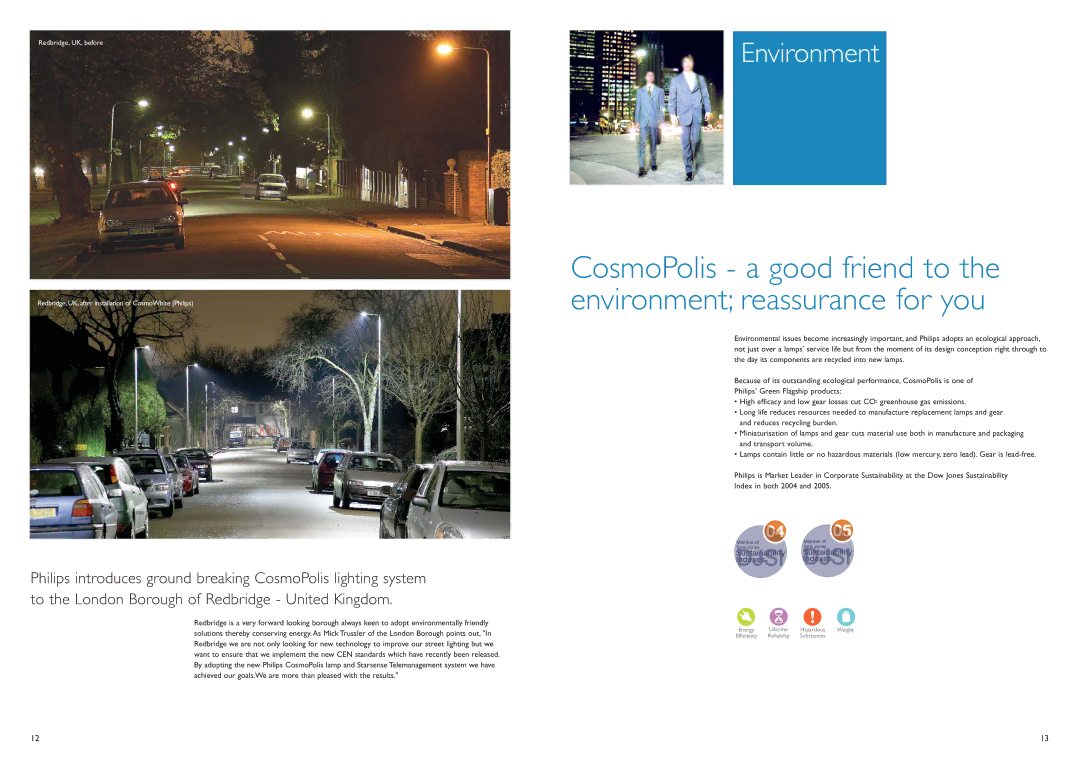Urban Lighting specifications
Philips Urban Lighting stands at the forefront of smart city development, offering innovative lighting solutions that enhance public spaces while promoting sustainability and energy efficiency. As urban areas continue to expand, the demand for effective and intelligent lighting systems has grown. Philips, a leader in this industry, provides technologies that not only illuminate but also contribute to the overall well-being of city residents.One of the key features of Philips Urban Lighting is its use of LED technology. LEDs are known for their longevity and low energy consumption, making them an ideal choice for cities aiming to reduce their carbon footprint. Compared to traditional lighting systems, LEDs can last up to 25 times longer, significantly reducing maintenance costs and the frequency of replacements. This longevity translates into fewer resources expended over time, contributing to a greener city.
Beyond energy efficiency, Philips Urban Lighting integrates smart city technology. Their systems can be managed through connected networks, allowing city planners to control lighting levels based on need. This adaptive lighting technology enhances safety and security while optimizing energy use. For example, lights can dim during low-traffic hours and brighten when pedestrian movement is detected, thereby ensuring well-lit but energy-efficient environments.
Another standout characteristic of Philips Urban Lighting is its focus on human-centric design. The lighting systems are tailored to improve the quality of life for urban residents. This includes enhancing visibility in public spaces and creating inviting atmospheres that encourage community interaction. The design options range from aesthetically pleasing fixtures to smart poles equipped with sensors that can monitor air quality, traffic patterns, and weather conditions.
Philips emphasizes the importance of flexibility and scalability in its urban lighting solutions. Whether it's upgrading existing infrastructures or building new ones, their systems can easily adapt to various urban environments. This adaptability makes it easier for cities to implement comprehensive lighting strategies tailored to their specific needs.
Finally, Philips Urban Lighting extends its commitment to sustainability by using recyclable materials in their products. This not only reduces waste but also aligns with global initiatives for a circular economy. By focusing on energy efficiency, smart technology, and human-centric design, Philips Urban Lighting sets a robust standard for the future of urban environments, promising brighter, smarter, and more sustainable cities.

